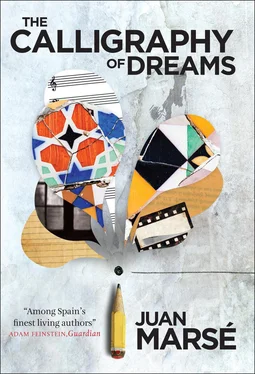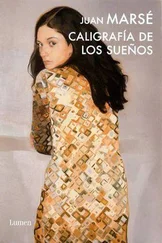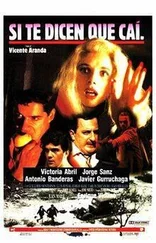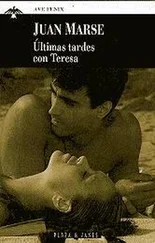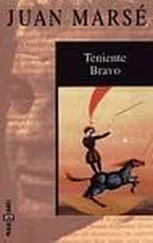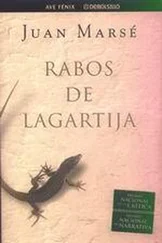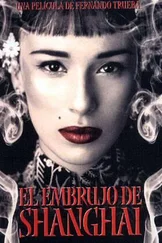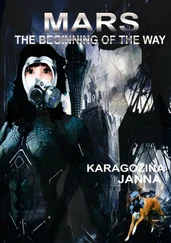“I’ll wait out here.”
Violeta shrugs, but doesn’t close the door. She stares at him for a few moments, and then says in the same apathetic voice:
“We’ll find something. Come on in.”
Wearily, she opens the door wide, and when he is in the hall suddenly closes it behind him. She pulls the collar of her housecoat up and turns her back on him, her body moving as if it was a burden, a heavy weight or a tedious responsibility, as if its striking attractions had nothing to do with her. She walks down the corridor with reluctant steps; a radio somewhere in the apartment is playing music. Beneath the pale ivory of her bare heels, the sandals clack across the mosaic tiles. “And you, where can you be, who knows what adventure you’re living, how far you are from me,” say words of the song. It’s a big apartment full of old-fashioned furniture, with a sugary, stale smell to it; the dark corridor ends in an explosion of light flooding into the dining-room from the rear veranda with its faded coloured-glass panes. But instead of taking him there, Violeta leads him into a small room halfway down the corridor.
It looks like a laundry room, but is obviously something more than that. There is hardly enough space for the ironing board laden with a pile of washing, the narrow iron bed pushed against the wall and covered in a green eiderdown, two wicker chairs, and a table with a heating dish under it and empty glass jars on top. There’s a faint smell of roast almonds in the air. It’s not a radio that’s playing the music, but a small record player perched precariously on a folding chair. On the bed are different-coloured cushions, a naked china doll with no hair, two cinema magazines, a few old copies of Flechas y Pelayos , an open sewing basket, and a fan. Pinned on the wall, Errol Flynn, his arm in a sling just like Ringo, smiles encouragingly at him in a photograph from “The Charge of the Light Brigade”. Alongside it are two programmes from the Salón Cibeles advertising the orchestras of Mario Visconti and Gene Kim.
“You can wait here,” says Violeta, switching off the record player and picking up several sleeves and records from the bed.
“Is this your room?” There’s no response. “You’re lucky to have a room of your own. I sleep in the corridor, in a truckle bed like yours. There’s only one bedroom in our flat; we sublet, you know.” Silence. “What were you listening to?”
“I wasn’t.”
“That’s a lie. It’s a song I know you like a lot.”
“You can sit on the bed if you like. You’re going to have to wait a while.”
“Last year, at the saint’s day fiesta, you danced it with me.”
“Did I? I don’t remember.”
“A rotten lie.” As he flops on to the bed, he drops his good hand to his hip, as if he is drawing a gun from its holster. “Got you bang to rights, sister. ‘Perfidy’, the song is called.”
As ever, he has mixed feelings as he observes her. Since she has looked several times at the arm in a sling across his chest, even if her deep, dark eyes are still cold and distant, he is expecting her to ask about it — he’s hoping she will. But Violeta doesn’t say a word. She stands by the door, arms folded, every so often casting him a sideways glance, disdainful but conscious she is attracting furtive scrutiny of her legs and the triangle formed in the material between her thighs and stomach, a confluence of slight creases curving in towards her pelvis. Ringo’s eyes narrow beneath the imaginary shade of a cowboy hat. He is secretly annoyed at himself for not being able to avoid the images that this-girl-he-does-not-like-at-all conjures up, and so, in an automatic gesture of self-defence, he hastens to remind himself yet again of the strident mismatch of shapes — these rounded hips are completely out of kilter with such tiny tits and with the girl’s narrow, weak chest — but this disharmony (he cannot help but realise yet again, whether he wants to or not) this dissonance between childish and adult forms that will soon be voluptuous, is precisely what attracts him.
“What about that lame fellow?” says Ringo at last, as if casually. “Doesn’t he come round anymore: is his leg better then?”
“How should I know?”
“Is it true someone took a bite out of him in a football game, and that’s why it’s shorter, and with the foot turned in …?
“Why should that interest me?”
She stares fixedly down at her fingernails, as if to close the matter. But he needs to insist, to goad her; he has come here full of trepidation, fearful of having to face Señora Mir, and he has no wish to be intimidated by her daughter.
“A strange guy. But I became a friend of his at the bar. Well, almost a friend. And your mother thinks a lot of him, everyone knows that. Until recently they were more than friends, they were a couple, weren’t they … he was her boyfriend, wasn’t he? What do you say, Violeta?”
“I say shit.”
“They also say — and please don’t be angry — they also say it won’t take her long to find someone else, and that it would be the best thing for her …” He falls silent, waiting expectantly for her answer: he would like her to agree with him, and say that yes, her mother is looking for another man. “What do you think?”
“I think shit.” She quickly reaches up to the blue towel, making sure it is tied tightly round her head, and continues staring at him. She plays with the wet strands on the back of her neck, but doesn’t seem nervous. Finally she adds: “Is what my mother does or doesn’t do that important to you?”
“I couldn’t give a damn, as you well know. It’s just what I hear. That if she found a new boyfriend she’d quickly forget the lame guy, and that it would be better for her. Of course it would. Mind you, it’s not me saying this, it’s what I heard in the bar. What do you think?”
Violeta looks at him with an aggrieved expression.
“Why are you telling me all this gossip? Why are you talking about couples and boyfriends, and asking all these … I don’t know … smutty questions?”
“I’m sorry, I didn’t think you’d take it like that.”
“Will you please shut up about it?” She closes her eyes as if they were stinging. When she opens them again she notices the loose bandage hanging out of the sling. “Who made such a messy bandage? It looks a sight. I bet it wasn’t your mother.”
“I put a safety pin in, but it came undone …”
“I heard what happened to your hand in the workshop. You must have been daydreaming. As usual.”
“Perhaps.”
Violeta folds her arms again, and leans back against the door. She raises her knee to press a naked foot against the frame, letting the housecoat fall slightly open.
“So what are you going to do now? You’ll have to learn another trade.”
“I’m not sure.” The triangle of tanned skin the open coat allows him to see above the knee suggests a pair of well-rounded thighs. “I’d like to work in a circus … I could be a magician, or a ventriloquist. I can do all kinds of voices. I’d wear evening dress and a bow tie and a top hat and do impressions of animals or people … it’s easy. But in fact, it’s most likely I’ll be a piano tuner.”
“Ha, a piano tuner. And while you’re waiting, what are you up to? Nothing, loafing around. It’s a shame, but that’s what you like doing. Loafing around.”
“It’s not true. I study music. I don’t have a piano yet, but I study on my own. And I also give my mother a hand, buying things, helping her in the kitchen …”
“Ah, so you’re a hard-working boy, are you? Where did you learn, in the courses run by the Falange’s Female Section, like me?” She smiles spitefully. “You’re a good-for-nothing, that’s what you are. A shame. Why do they call you Ringo? Isn’t your name Mingo?”
Читать дальше
